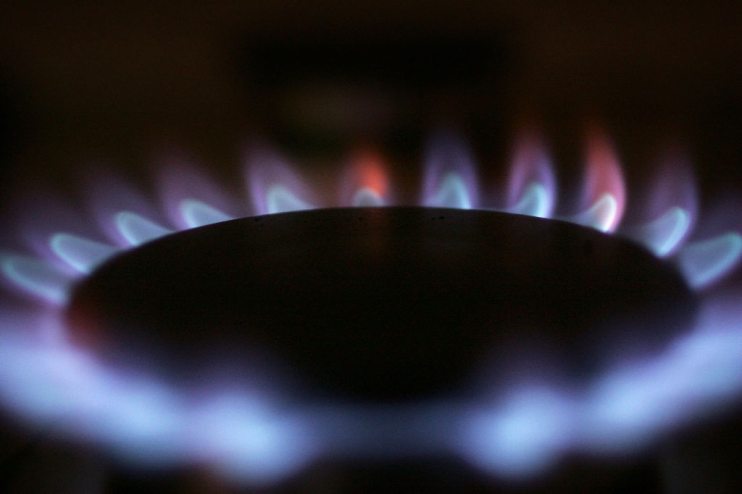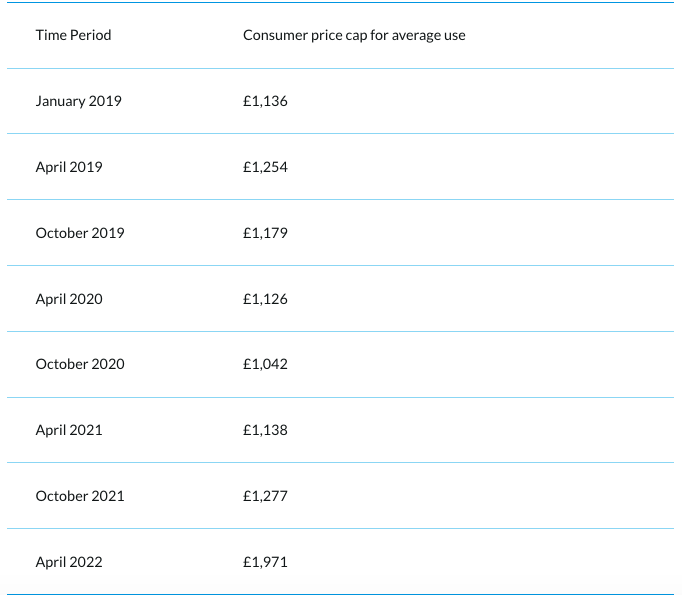Office for Budget Responsibility warns household energy bills could double this year

Energy bills could spike 40 per cent this winter, warned the Office for Budget Responsibility (OBR), placing further pressure on cash-strapped households.
In its latest monthly report, OBR suggested the consumer price cap could more than double this autumn – rising from £1,277 per year for average use in October 2021 to nearly £2,800 per year.
This would be a 120 per cent increase over a 12-month window, reflecting historically elevated wholesale costs and market mayhem across the energy sectors.
Natural gas prices soared to an eye-watering £8 per therm earlier this month, and remain high at £3.06 per therm – amid escalating fears of supply shortages and disruption, alongside rebounding post-pandemic demand across developed economies.
For context, prices were as low as 48p per therm at the same time last year.
Reflecting current market volatility, prices have soared over 30 per cent today with benchmarks increasingly influenced by rapidly evolving geopolitical factors.
OBR’s baseline forecasts are typically conservative – with Investec and Goldman Sachs forecasting this month that the price cap could rise to as much as £3,000 in October.

The price cap has already been hiked 54 in April, when household energy bills will rise £1,971 per year for average use.
This was 39 percentage points higher than the 15 per cent OBR had forecast.
OBR does expect prices to eventually dip – potentially falling as much as 30 per cent in time for the subsequent price cap update in April 2023.
Meanwhile, fuel poverty charity National Energy Action has criticised Chancellor Rishi Sunak’s Spring Statement as “desperately disappointing.”
The chancellor announced a five pence fuel duty cut and VAT cuts for households on solar panels and heat pumps.
However, he announced no new measures to ease rising household energy bills – which are rising to painful new heights this winter amid a cost-of-iving crisis which is also being felt at the pumps and with grocery bill inflation.
Chief executive Adam Scorer, said: “The government must use spring and summer to come up with a real plan ahead of next winter, if we are to avoid the worst of cold homes, debt and needless deaths.”
Ofgem reveals £2.4bn bill for households
Following the market carnage, Ofgem has pledged to bring in hedging controls and financial stress tests for suppliers stricter.
Last week, it unveiled more stringent licensing criteria for energy firms entering the market.
Dozens of energy firms have crashed out of the industry over the past six months, amid insufficient hedging strategies and the lethal combination of soaring wholesale costs and the price cap – directly affecting over four million customers.
Earlier today, the market regulator revealed households could face a £2.4bn bill to fund suppliers that took on customers from fallen firms during the escalating crisis.
The supplier of last resort process has transported stranded customers to other energy firms – but with companies making an initial loss on taking on households, Ofgem has been compensating suppliers.

The energy watchdog made the gloomy forecast in its submission of evidence to the BEIS Select Committee.
Ofgem said: “While it is still subject to significant uncertainty, our current estimate for total claims is approximately £2.2bn-£2.4bn.”
The reported costs do not include the collapse of Bulb Energy into special administration – which has remained on life support over the winter, surviving through transfusions of public money.
The latest estimates suggest keeping the UK’s seventh biggest energy supplier going could rise to £3bn – with the firm unable to hedge prices like other suppliers.
There are also growing concerns in Downing Street that Gazprom Energy – which supplies 20 per cent of the energy needs for UK businesses – could collapse and require de-facto nationalisation too.
The supplier is chasing buyers following a mass exodus of client in response to Russia’s invasion of Ukraine.